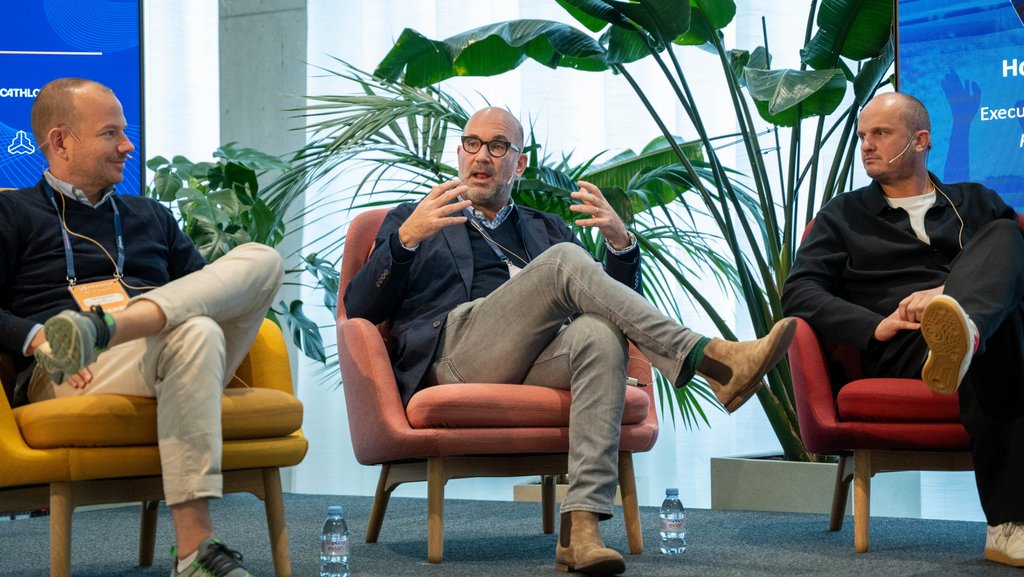Campus - 31.10.2025 - 16:30
The motto of this year's Impulse Summit, which took place over the last two days at the HSG's SQUARE, was ‘The Next Billion Fans’. The focus was on the pressing question of how the sports industry can more effectively tap into and win new global and young audience markets.
Noémie Jennifer Bürgin, the 26-year-old co-president of the event, sees considerable room for improvement, particularly when it comes to targeting younger generations. ‘New target groups are often still being addressed with the same strategies as ten years ago,’ criticises Bürgin. She emphasises that today's most exciting fan communities are emerging in digital spaces, on social media platforms or around new formats that go far beyond traditional sports. In addition, young viewers are increasingly internationally oriented and interested in new sports, innovative formats and, to a greater extent, women's sports. According to Bürgin, the sports business is still very cautious about investing in the latter in particular.
The balancing act between tradition and modernity is also a central theme in German football, as a panel discussion at the Impulse Summit made clear. The central question: how can you secure the attention of audiences beyond your home market? Peer Naubert, CEO of Bundesliga International GmbH, highlighted the enormous international potential of German football: ‘Globally, there are 1 billion people who are interested in the Bundesliga. In contrast, there are only 40 million people in Germany.’
Other leagues are also eyeing up international audiences. Spain's La Liga was the first in Europe to attempt to move a match between FC Barcelona and FC Villarreal to Miami. However, it had to back down due to massive protests from players, fans and the public. Naubert does not currently see Bundesliga matches abroad as a solution: 'We don't want to risk the domestic market for our expansion plans.‘ Consultant Holger Hansen from the Publicis Group adds: ’The attention quickly fades after a one-off match abroad anyway.'
A more promising strategy, according to Hansen, is to sign players from strategically important countries: ‘People follow people. If, for example, players from Japan are signed, this will also attract increased attention from Japanese fans.’ Dirk Schluenz, marketing director of 1. FC Nürnberg, emphasised that the balancing act between the logic of today's attention markets and the traditional fan base is not always easy: ‘We are a club owned by the fans. As a result, tradition-conscious fan groups have a significant influence on our decisions. You have to balance innovation and tradition.’
This year's summit was once again organised by the Impulse Network, an initiative of around 30 HSG students of all levels who volunteer their time alongside their studies.
More articles from the same category
This could also be of interest to you
Discover our special topics
